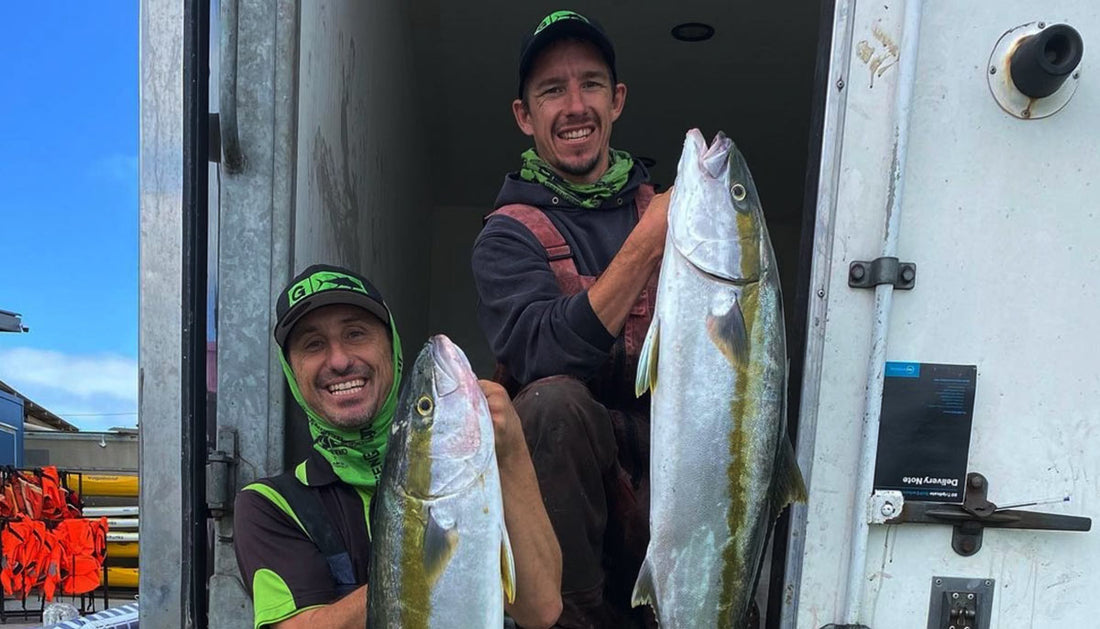
Where possible, we catch ourselves. This fresh fish is the foundation of our business.
Share
In all other instances we choose our partners and suppliers with exceptional care.
Above all our commitment is to quality, traceability and transparency.
The oceans are our livelihood and passion. Greenfish is invested in continually reducing impact, educating consumers and protecting this natural abundance. All of the suppliers we work with share this ethic.
When we buy, we buy directly from the producer or harvester.
All Greenfish products are traceable directly to their origin.
None of our products are subject to harmful CO2 or chemical treatments.
These strong, direct connections and our continued, hands-on harvesting practice differentiates Greenfish from our competitors. Where possible our imported products are MSC (Marine Stewardship Council) approved.
There is no book, or list of “how to” do fish and seafood like we do, it’s a matter of learning and exposure over many decades, then doing what we believe in each day.
Local Artisanal Style Fishing:
We firstly support artisanal style fishing by traditional hand line fishermen and pole over other methods. For Hand line/ Pole fishing or ring net catching of West Coast Rock lobster, one line and one hook per fisherman has many limitations.
These rights holders get very few days a year to fish due to weather, seasonal and social economic constraints. This method of catch is very selective and has little to no damage to sea birds or marine mammals.
These hard working fishermen stick to the rules within the limitations of the law set out by the MRLA (Marine and Living Resources Act). Their catch accounts for a very small percentage of the total harvest from the sea in South Africa, yet often these fishermen get painted with the same brush as poachers or trawling operations.
I grew up on the West coast, bouncing between boats and harbours around the peninsula from Lamberts Bay, St Helena Bay, Hout Bay, Cape Point, Gaansbaai, Struisbaai, Arniston and Stillbaai to name but a few.
I was very fortunate to grow up in a traditional community based fishing culture - one of early mornings, late nights and hard work.
Starting on fishing boats as a crew member and working my way through the ranks to skipper, I was exposed to many facets of the fishing life. I saw opportunity in adding value to our catch and started Greenfish from my driveway. I was fortunate enough to interact with many of the traditional line fishermen on the West Coast, Struisbaai and the tuna pole fishermen in Cape Town that as a youngster I grew up fishing with - I had relationships and trust already.
Handline fishing is not an easy occupation; many simply sink away and fall victim to mass fishing operations, where economies of scale simply strip away the fair trade and small profits that once existed.
We embrace who we are, where we come from and see it as a responsibility to give back to the communities that embraced me as a youngster and enabled Greenfish to get where we are today.
Seafood Imports:
When demand requires, we search first in our local region for quality products and direct relationships with partners that share our ethos.
Always aware of our impact on the planet, Greenfish works with Greenpop.org on an ever evolving carbon offset initiative, planting trees in fishing based communities around the Western Cape.
Greenfish does not purchase products from large commodities markets, nNone of our products are subject to harmful CO2 or chemical treatments.
Farmed Seafood Products:
Greenfish has developed and maintains privileged, direct relationships with the best of local and international aqua-culture operations. Greenfish has pioneered and supported the introduction of a number of firsts into the South African market including; the first live farmed abalone, South Africa’s first Certified Organic Salmon. These partners share our concerns and continually strive to provide the absolute best quality with the least impact.
Done right, aquaculture is an important development in reducing our impact on wild populations. These sustainable practices provide quality produce with a fraction of the impact of alternative protein sources.
If it’s sold by Greenfish you can bet that it’s from an operation that shares our passion for quality and care for the ocean and its creatures.
